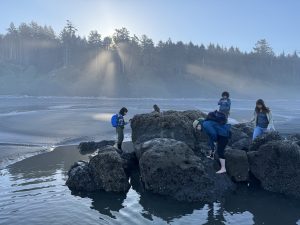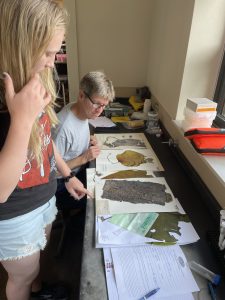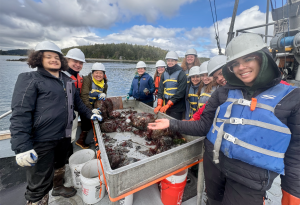FHL 446 | Summer A 2025
Marine Botany: Diversity and Ecology 2025
Students will learn fundamental morphology, life-histories, and algal ecology as a basis for classical and contemporary methods for the identification, classification, and phylogenetic analysis of marine benthic algae (seaweeds); the theories underlying the methods, and the application of biodiversity information in (for example) benthic ecology. Students will gain practical experience in such tools as: specimen collection, preservation, microscopy, DNA isolation and sequencing, computational approaches to phylogeny reconstruction, simple genome assembly methods, DNA barcoding, and databasing. Fieldwork will be extensive, as the diverse and species-rich habitats around San Juan Island provide ideal sites for the examination of macroalgal diversity.
Students will participate in research projects combining morphological, ecological and molecular data to assess the diversity of algal populations and to interpret that diversity in its ecological and biogeographic context. The class will also continue to populate the “Marine Algae of the San Juan Islands” BOLD system database project and publish a new public dataset for the project.
This is a course appropriate for marine biology, botany and oceanography students with interests in marine biodiversity, conservation biology, coastal ecology with an emphasis on primary producers, and commercial applications of algae.
Funding to attend the course will be available from FHL as well a Croasdale Fellowship from the Phycological Society of America. https://www.psaalgae.org/croasdale-award


